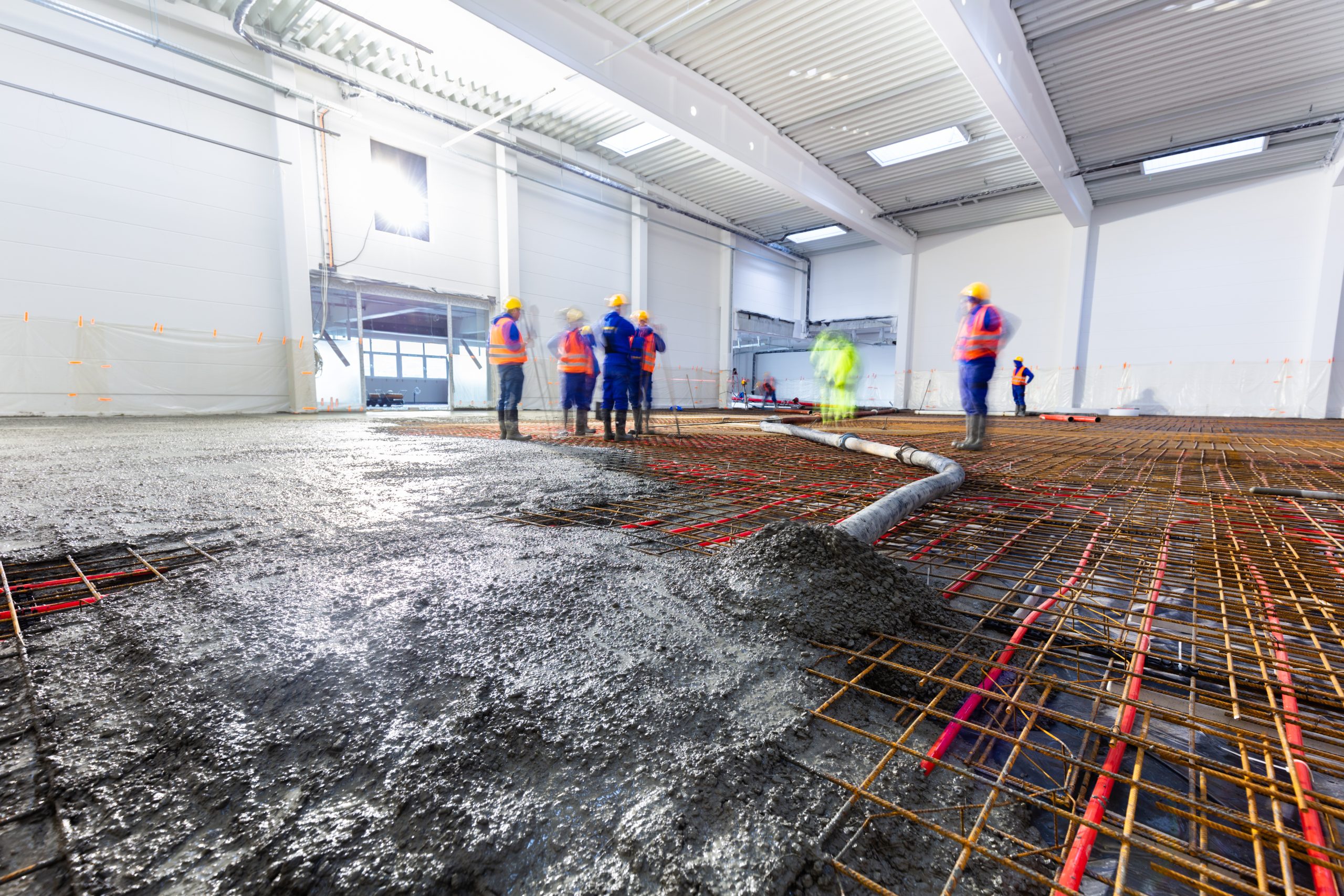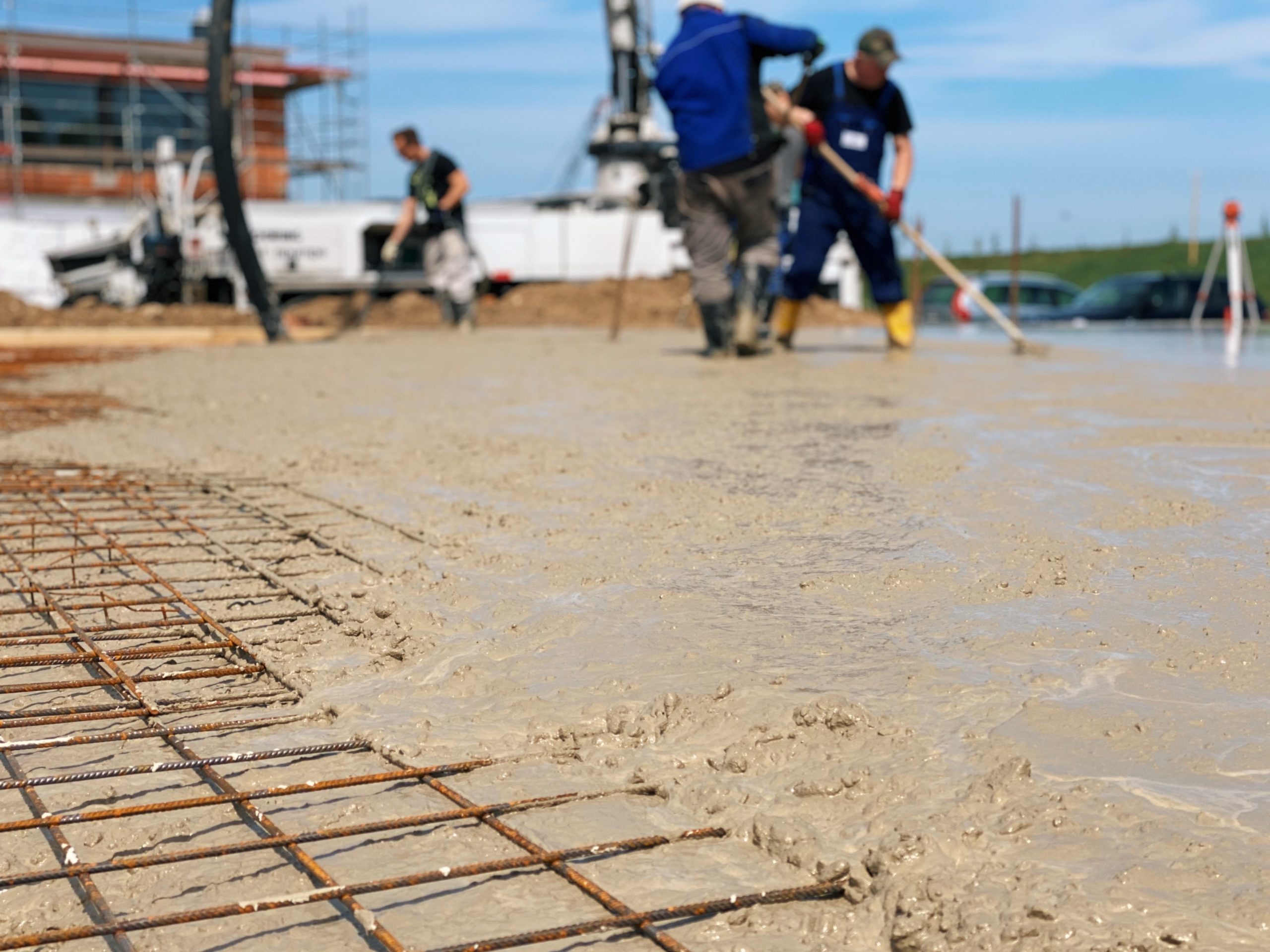Across Rotherham’s thriving commercial landscape—from the industrial estates at Templeborough and Aldwarke to the retail developments in the town centre and modern office spaces throughout the borough—concrete flooring continues to prove itself as the foundation of choice for businesses prioritising durability, functionality, and long-term value. Understanding the distinct advantages concrete flooring offers, along with the various application methods available, helps commercial property owners and developers make informed decisions that serve their operational needs for decades to come.
Understanding Concrete Flooring Solutions
Concrete flooring encompasses various applications of cement-based materials to create functional floor surfaces in commercial environments. These range from structural concrete slabs that form the ground floor of a building to specialized toppings applied over existing substrates.
Structural concrete flooring refers to load-bearing slabs, typically 100-200mm thick, cast directly onto prepared ground or suspended between supporting beams. These substantial floors form an integral part of the building structure, designed to support heavy loads whilst providing a stable, level surface.
Concrete screed flooring involves applying a thinner layer (typically 25-75mm) of cementitious material over a structural base. This concrete screeding process creates a smooth, level wearing surface and can incorporate various additives to enhance specific properties such as rapid drying, increased strength, or improved surface finish.
The distinction matters because different commercial applications demand different solutions. A warehouse requiring heavy forklift traffic needs a robust structural slab, whilst a retail space might benefit from a specialized screed that accommodates underfloor heating and achieves a polished aesthetic finish.
Unmatched Durability and Load-Bearing Capacity
For commercial operations in Rotherham—particularly in the manufacturing and logistics sectors that form such a vital part of the local economy—flooring durability directly impacts operational efficiency and long-term costs. Concrete flooring excels in environments where alternative materials simply cannot cope.
Properly specified and installed concrete floors withstand extraordinary abuse. Industrial operations involving heavy machinery, constant forklift traffic, pallet movement, and dropped loads would destroy most flooring materials within months. Quality concrete flooring endures these conditions for decades with minimal deterioration.
The compressive strength of commercial-grade concrete, typically ranging from C25/30 to C40/50 depending on application, provides load-bearing capacity that alternative flooring materials cannot match. Distribution centres handling loaded pallets, manufacturing facilities accommodating heavy equipment, and automotive workshops supporting vehicle loads all benefit from concrete’s inherent strength.
This durability translates directly into financial advantage. Whilst initial installation costs for concrete flooring may exceed some alternatives, the lifespan—often 30-50 years or more with appropriate maintenance—delivers exceptional return on investment. Businesses avoid the disruption and expense of frequent floor repairs or replacements that plague facilities using inadequate flooring solutions.
Minimal Maintenance Requirements
Commercial operations demand flooring that doesn’t create ongoing maintenance burdens. Concrete flooring meets this requirement admirably, requiring substantially less attention than most alternatives whilst maintaining functionality and appearance.
Basic maintenance for concrete floors involves regular sweeping or scrubbing to remove accumulated dirt and debris. Unlike carpeting, which harbours dust, allergens, and stains, or timber flooring, which requires periodic refinishing, concrete floors maintain their integrity with minimal intervention. For industrial applications, this simplicity proves invaluable—cleaning crews can maintain floors quickly without specialized equipment or products.
Modern surface treatments further enhance concrete flooring’s low-maintenance characteristics. Sealed concrete floors resist oil penetration, chemical spills, and moisture damage. Polished concrete surfaces develop a durable, attractive finish that actually improves with light traffic, requiring only damp mopping to maintain their lustre.
This maintenance efficiency matters particularly for 24-hour operations common in Rotherham’s logistics sector, where minimizing downtime for floor care directly impacts productivity. Concrete flooring accommodates intensive use without demanding extensive maintenance windows.
Aesthetic Versatility and Modern Finishes
The perception of concrete as purely utilitarian has evolved dramatically. Contemporary concrete flooring techniques create sophisticated aesthetic finishes suitable for client-facing commercial environments, modern offices, and upscale retail spaces.
Polished concrete has emerged as a design-forward flooring choice combining industrial chic with practical benefits. The polishing process grinds and refines the concrete surface to create a smooth, reflective finish ranging from subtle matte to high-gloss appearances. This finish showcases the natural aggregate within the concrete, creating unique visual character impossible to replicate.
Polished concrete floors suit diverse commercial environments. Forward-thinking offices in Rotherham increasingly specify polished concrete for its contemporary aesthetic, excellent light reflectivity (reducing lighting costs), and appeal to employees and clients alike. Retail spaces utilize polished concrete to create modern, clean environments that place focus on merchandise rather than competing floor finishes.
Beyond polishing, concrete accepts various decorative treatments. Stains and dyes create rich, variegated colours. Scoring or saw-cutting introduces geometric patterns. Integral colours throughout the concrete mass ensure lasting hue that won’t wear away. These options enable designers to specify concrete flooring that enhances rather than compromises aesthetic intentions.
Thermal Mass and Energy Efficiency
Commercial property operators increasingly prioritize energy efficiency, both for environmental responsibility and cost control. Concrete flooring contributes significantly to thermal performance through its substantial thermal mass.
The density of concrete enables it to absorb, store, and slowly release heat energy. During warmer periods, concrete floors absorb excess heat, moderating temperature rises. As conditions cool, stored heat releases gradually, reducing heating demands. This thermal flywheel effect stabilizes internal temperatures, reducing the load on mechanical heating and cooling systems.
This characteristic proves particularly valuable when combined with underfloor heating systems. Concrete screed floors incorporating heating elements distribute warmth evenly and efficiently across large commercial spaces. The concrete mass stores heat energy, allowing heating systems to operate during off-peak electricity periods whilst maintaining comfortable temperatures throughout occupied hours.
For Rotherham businesses operating large commercial premises, these energy efficiency benefits translate into meaningful utility cost reductions and improved environmental performance—increasingly important factors in corporate sustainability initiatives and regulatory compliance.
Applications Across Rotherham’s Commercial Sector
Different commercial environments across Rotherham benefit from concrete flooring in specific ways:
Warehouses and Distribution Centres: The logistics operations throughout Rotherham, particularly around the Advanced Manufacturing Park and Templeborough, require flooring that withstands intensive forklift traffic and heavy pallet loads. Structural concrete slabs, typically 150-200mm thick with appropriate reinforcement and surface hardening, provide the necessary durability.
Manufacturing Facilities: Production environments benefit from concrete’s resistance to oil, chemicals, and impact damage. Sealed or resin-coated concrete floors maintain clean, safe working environments whilst accommodating the mechanical demands of manufacturing operations.
Retail Spaces: Modern retail developments increasingly specify polished concrete for its contemporary appearance, durability under foot traffic, and ease of maintenance. The reflective surface enhances lighting effectiveness, creating bright, welcoming shopping environments.
Office Environments: Progressive offices adopt polished concrete as part of open-plan, industrial-aesthetic design schemes. The flooring complements exposed services, steel-framed construction, and minimalist interiors whilst providing practical, low-maintenance performance.
Automotive Facilities: Workshops, showrooms, and service centres benefit from concrete’s resistance to oils, its load-bearing capacity under vehicle traffic, and its long-term durability in demanding environments.
Choosing Between Concrete Screed and Structural Solutions
Determining the appropriate concrete flooring approach depends on your specific circumstances:
Structural concrete slabs suit new-build construction, ground floor applications, or situations requiring substantial load-bearing capacity. These form the permanent structural floor and accommodate the heaviest operational demands.
Concrete screed works effectively for renovations, providing a new wearing surface over existing structural floors, or in applications requiring specific properties such as rapid installation, self-levelling characteristics, or enhanced surface finish. Flowing screeds can be laid quickly across large areas with minimal labor, creating perfectly level surfaces ideal for subsequent floor finishes or polishing.
Liquid screeds, in particular, offer advantages for commercial projects on tight timelines. These specialized mixes achieve level surfaces with minimal manual intervention, cure rapidly, and accommodate underfloor heating systems efficiently.
The Ready Mix Advantage
Both structural concrete slabs and quality screed installations benefit enormously from ready mix concrete delivery. The volumes involved in commercial flooring projects—often 20-100 cubic metres or more—make on-site mixing completely impractical.
Ready mix concrete ensures consistency throughout the pour, crucial for achieving uniform strength and surface characteristics across large floor areas. Factory batching guarantees precise mix proportions, whilst technical specifications can be tailored to your exact requirements—specific strength grades, workability characteristics, setting times, and specialized additives.
For commercial projects in Rotherham, National Mini Mix provides the technical expertise to specify appropriate mixes for your flooring application, reliable delivery that keeps your project on schedule, and the quality assurance your commercial installation demands.
Investing in Long-Term Performance
Concrete flooring represents a strategic investment in your commercial property’s operational capability and long-term value. The combination of exceptional durability, minimal maintenance requirements, aesthetic versatility, and energy efficiency creates a compelling case for concrete across diverse commercial applications.
Whether you’re developing a new industrial unit, refurbishing existing commercial space, or specifying finishes for a contemporary office environment, concrete flooring delivers the performance, longevity, and value that Rotherham businesses need to thrive in competitive markets.



